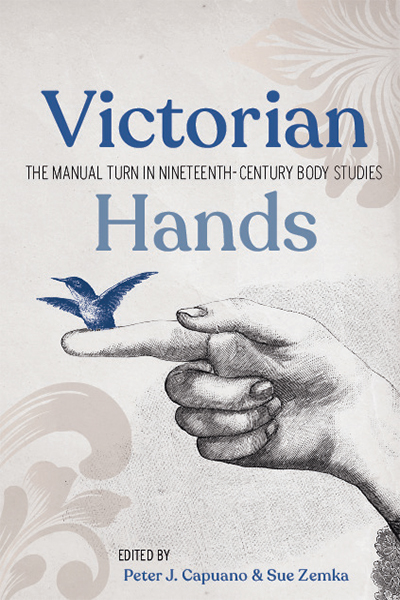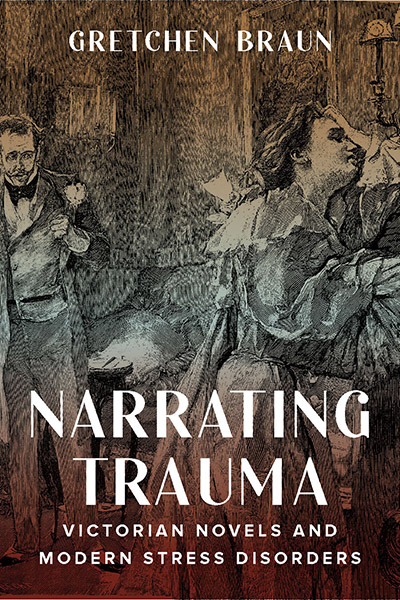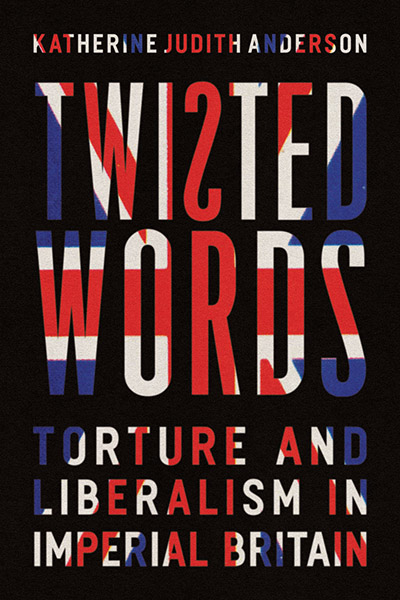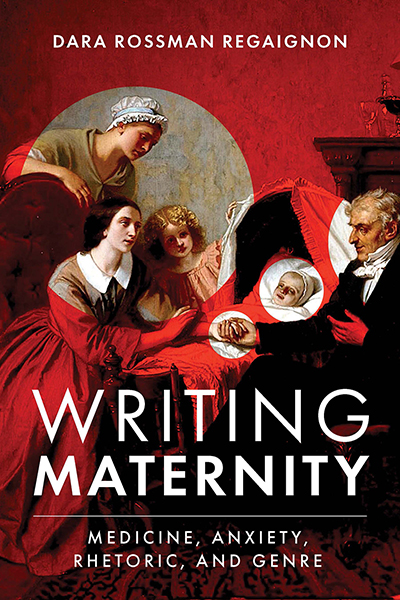“Narrating Trauma ... offers seminal contributions to the fields of literature, cultural and gender studies, psychology, and medical science—as well as an investigation of the overlapping discourses of these disparate disciplines ... Braun offers impressive analyses of canonical texts.” —Kristian Kahn, Victorian Studies
“Narrating Trauma displays admirable clarity and a thorough grasp of relevant scientific and literary criticism. ... It is an important intervention in the field due to the urgent questions it raises about trauma and what we stand to gain by rethinking the concept.” —Anne Stiles, Nineteenth-Century Literature
“Braun provides a fascinating glimpse into the Victorian prehistory of trauma. By reading Victorian novels through the lens of trauma studies, Braun offers a fresh perspective on some well-studied books and opens up discussions about under-researched texts.” —Sarah Frühwirth, Victoriographies
“Scholars of Victorian fiction and of trauma studies are bound to profit from the insights of Braun’s admirable monograph.” —Parama Roy, Victorians Institute Journal
“With Narrating Trauma, Braun delivers a rich and absorbing foray into novelists’ adoptions of Victorian psychology and neurology ... Braun’s insights into how trauma shifts narratives’ temporal logic, as when the burdens of unresolved past trauma foreclose positive futurity, will likely prove fruitful to subsequent scholars.” —Doreen Thierauf, Nineteenth-Century Gender Studies
Neurasthenia, rail shock, hysteria. In Narrating Trauma, Gretchen Braun traces the nineteenth-century prehistory of those mental and physical responses that we now classify as post-traumatic stress and explores their influence on the Victorian novel. Engaging dialogues between both present-day and nineteenth-century mental science and literature, Braun examines novels that show the development of the mental dysfunction known as nervous disorder, positing that it was understood not as a failure of reason but instead as an organically based, crippling disjunction between the individual mind and its social context—with sufferers inhabiting spaces between sanity and madness.
Spanning from the early Victorian period to the fin de siècle and encompassing realist, Gothic, sentimental, and sensation fiction, Narrating Trauma studies trauma across works of fiction by Charlotte Brontë, Emily Jolly, Wilkie Collins, George Eliot, Charles Dickens, and Thomas Hardy. In doing so, Braun brings both nineteenth-century science and current theories of trauma to bear on the narrative patterns that develop around mentally disordered women and men feminized by nervous disorder, creating a framework for novelistic critique of modern lifestyles, stressors, and institutions.
Gretchen Braun is Associate Professor in the English department and Women’s, Gender, and Sexuality Studies program at Furman University.
Contents
Introduction Nervous Disorder, Narrative Disorder, and Perspectives from the Margins
Chapter 1 Contemporary Trauma Studies and Nineteenth-Century Nerves
Chapter 2 “Dim as a Wheel Fast Spun”: Repetition and Instability of Memory in Charlotte Brontë’s Villette
Chapter 3 “I Have a Choice”: Emily Jolly Reframes Women’s Agency
Chapter 4 Wilkie Collins and George Eliot Confront Accidents of Modernity
Chapter 5 Charles Dickens, Thomas Hardy, and the “Self-Unmade” Man
Conclusion Expanding Our Frame
Bibliography
Index
“Braun’s conclusion reminds the reader of the resonances between the Victorian period and our own ... In this sense, Narrating Trauma establishes its timeliness and relevance – understanding the past, and the ways those before us responded to stress and change, is not only strangely familiar, but strangely reassuring, too.” —Jessica Gildersleeve, Australasian Journal of Victorian Studies
“Bold and timely, Narrating Trauma offers new ways of thinking about the past and present as critical reflections on each other, forging an inspiring way of combining historicism with the use of modern theory.” —Andrew Mangham, author of The Science of Starving in Victorian Literature, Medicine, and Political Economy
“Braun’s adeptly constructed dialogue between trauma studies and narrative theory within Victorian literature is situated soundly amongst the work of prominent scholars and moves Victorian studies toward new understandings of nineteenth-century medical discourse and the representation of women.” —Molly Youngkin, author of Feminist Realism at the Fin de Siècle: The Influence of the Late-Victorian Woman’s Press on the Development of the Novel
Related Titles:

Victorian Hands
The Manual Turn in Nineteenth-Century Body Studies
Edited by Peter J. Capuano and Sue Zemka




